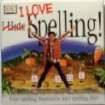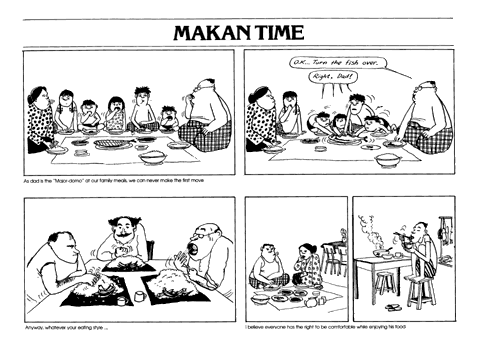
Read the following passage and try to complete the exercises that follow. I will give the explanations in a later entry.
Even Sherlock Holmes would agree: The spelling of English words is not elementary, no matter how often we try to teach it in elementary school. The problem is that sometimes we spell the same sounds in different ways such as vowel sound in me and ski. The rest of the time we use the same letters to represent different sounds, as with g in gem and go.
Homonyms can be difficult - they're, there, and their are the triple threat that trip up everyone once in a while - but suffixes are worse. Is -sede, -cede, or -ceed? When does a word take an -ible and when an -able (as in dirigible or tractable)? When do double an l, drop an e, or add an -ally (not an -ly)?
The vowels alone are enough to induce a case of the heebie-jeebies: Webster's Ninth New Collegiate gives 36 ways to pronounce and spell a sounds. And even consonants can pull a fast one. In an ad essay for International Paper Company (part of the Power of the P rinted Word series), novelist John Irving list 13 ways to spell the sh sound, including the least likely looking, ti, as in nation. Unfortunately, mnemonic devices are less likely to untie the numerous knots of spelling than well, a gnat is to die of pneumonia.
rinted Word series), novelist John Irving list 13 ways to spell the sh sound, including the least likely looking, ti, as in nation. Unfortunately, mnemonic devices are less likely to untie the numerous knots of spelling than well, a gnat is to die of pneumonia. Of course, there are rules, but they have their own problems. Consider the following excerpt from Arco's Office Guide to Spelling and Word Division by Margaret A. Haller (1984): " A single consonant following a single vowel and ending a monosyllable or a final accented syllable is doubled before a suffix beginning with a vowel."
Such rules boggle the mind and make the eyes cross; it's actually a relief to learn that most of them have so many exceptions that even a person who understands such stuff can make mistakes.
It is some comfort to know that, even 200 years ago, spelling was not a big issue. A writer might spell a word three different ways in one sentence, and nobody looked twice. but nowadays we're neater, more consistent. People who misspell invite ridicule, reproof, and even disregard from employers and friends alike. Knowing this, some would-be writers get so annoyed or so embarrassed that they quit, others forge ahead and make ruinous mistakes.
Fortunately spelling is a skill that can be learned. There are tricks, and the rules do help a writer play the odds with good guess. For example, according to Arco's, only one word ends in -sede: supercede. Only three end in -ceed,: exceed, succeed, and proceed. All the rest like that end in -cede.
The first thing to do is get a good dictionary, one that has a pronunciation scheme that the user feels comfortable with. If it has etymologies, so much better: Knowing that chauffeur, for example, comes from French might help fix in mind the ch spelling of the sh sound and the -eur at the end.
Next, look for a good book on spelling. Jessica Davidson's How to Improve Your Spelling and Vocabulary (Franklin Watts, 1980) is - despite its dull title - a funny, down-to-earth book that starts out one chapter with the question "What's the difference between the English navy and the English Language?" Answer: "The navy rules the waves and the language waives the rules."
Davidson tells when to use -ible and -able, at least most of the time (-able goes on a word that can stand alone, "either as it is or with and e on the end or a y for an i"); if it can't stand alone, it gets the -ible. (Mnemonic nonsense can help here: Just remember that since it it can't stand alone, "I will help it.") Less funny but more complete is Spelling Simplified written by Judi Kesselman-Turkel and Franklynn Peterson (Contemporary Books, 1983).
Also useful are spelling dictionaries such as Arco's. Only 14 pages of this book are rules; the either 266 are lists of words, three columns to a page, correctly spelled and divided.
All of these books lend method to the madness of spelling, and they offer lots of tips. For example, browsing in Spelling Simplified, a reader finds that only four common one-syllable words ending in a z sound are actually spelled with a z instead of s: fez, quiz, whiz, and adz. Also, only one English word spells the v sound with an f: of. And when two vowels come together in a diphthong, the main sound of them usually comes first in the spelling; gait, camouflage.
Ultimately, spelling well is a do-it-yourself project. Reading helps because seeing words in print trains the eye for what "looks" right. When all else fails, there's the personal double-check list - words that for some reason never "look" right to the list maker, even when they are. My own list includes commitment and appall: I always put an extra t in the fist, and take out a consonant, any consonant, in the second.
And then there's casserole, which I am writing now for the first time in 15 years. Suffice it to say I once had to write nine thank-you notes for casserole dishes, and it wasn't until after mailing the eight one that I checked the dictionary.
Exercise : Inferences
Which of the following statements can be inferred from the passage:
1. Most spelling rules are pretty simple.
2. Nearly anyone can become a good speller.
3. Vowel sounds are easier than consonant sounds.
4. People who read a lot tend to be better spellers.
5. Using mnemonic devices is the best way to improve your spelling.
6. Knowledge of a word's etymology can aid spelling.
7. Suffixes are a big spelling problem.
8. There are so many exceptions that spelling rules are really useless.
9. Poor spelling can undermine the message the writer wants to communicate.
10. Spelling dictionaries aren't much good.
Exercise: Fact or Opinion
Which statements are fact and which are opinion.
1. "Even Sherlock Holmes would agree..."
2. "...Sometimes we spell the same sounds in different ways."
3. "The vowels alone are enough to induce a case of the heebie-jeebies..."
4. "Novelist John Irving lists 13 ways to spell sh sound..."
5. "...Only one word ends in -sede..."
6. "Davidson tells when to use -ible and -able..."
7. "Such rules boggle the mind and make the eyes cross..."
8. "Only 14 pages of this book are rules..."
9. Only four common one-syllable words ending in a z sound are actually spelled with a z instead of s..."
10. "...Only one English word spells the V sound with an f:of."
Exercise : Tone, Purpose.
1. What do you think is the author's purpose for writing this article?
2. What is the tone of the passage?












